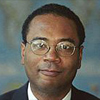11 May 2010 See Something, Say Something: New York City Versus Arizona
 After a bomb was recently discovered in a smoking Nissan SUV in Times Square, America watched anxiously as city, state, and federal authorities investigated.
After a bomb was recently discovered in a smoking Nissan SUV in Times Square, America watched anxiously as city, state, and federal authorities investigated.
In just 53 hours, law enforcement and national security teams working together successfully apprehended the terrorist — Pakistani born émigré Faisal Shahzad. His dramatic capture off a Dubai-bound airliner just moments before it took flight seemed more like a Tom Clancy novel than real-life.
Amazingly, this potentially devastating terror act ended almost as quickly as it began.
Here is the takeaway: it was New York City beat cops working with street vendors, along with the FBI and the CIA, which produced the correct outcome. No one was hurt, and the suspected terrorist was apprehended.
Yet when Arizona — after years of skyrocketing crime from smugglers and drug traffickers — attempts an almost identical type of collaboration, East and West Coast elites react with vitriol.
The issues are so similar it is truly curious that no one has managed to put them together before now. Unless their agenda is purely political, critics of Arizona’s new illegal immigration statute should also logically attack New York. After all, why should New York be allowed to tread on federal government authority when critics say it is wrong for Arizona to do so?
Is it that the stakes are so high in New York? They are just as high in Arizona. Phoenix is the kidnap capital of the United States.
Is it because New Yorkers have borne the consequences of terrorism that they should have a stake in the solution? Arizona similarly suffers tremendously from the federal government’s failure to stem the flow of illegals and have just as much a claim for a local response as New Yorkers do.
Aren‘t they enforcing the same law already passed by Congress? Why not leave it to the feds? There is a difference. Arizona is not nearly as ambitious about immigration enforcement as New York is about terrorism. By all accounts, New York adopted sweeping new and duplicative anti-terrorism policies post-9/11.
One New York program, “See Something, Say Something,” relies on citizen participation and is credited with stopping the recent attack in its tracks. Instead of keeping citizens out of the law enforcement process, New York City adopted a very aggressive campaign to keep citizens vigilant and beat cops engaged.
In an interview with Diane Sawyer shortly after the SUV was located, New York City Mayor Michael Bloomberg said: “We spend an enormous amount of money and an enormous amount of time training each individual agency and working together. […] And you saw that working here. It was smooth, it was seamless. Somebody saw something — a cop knew what to do right away.”
New York State also got into the act, passing a panoply of “anti-terrorist” legislation similar to existing federal law. It is now a felony in the Empire State to engage in terrorist acts, solicit terrorist acts, provide support for terrorists or hinder the prosecution of terrorists.
Imagine what might have happened if New York expected police to overlook terrorists or terrorist threats the way critics of Arizona say police should overlook immigration law violations. How many parking tickets would the Nissan in Times Square get before it detonated?
New York has a hotline where anyone can call in with suspicions about terrorism, and the city takes the calls seriously. New York has additionally set up teams of law enforcement agents specifically tasked with counter-terrorism duties.
Arizona isn’t going that far. Arizona law now says that, in essence, police can investigate and arrest suspected immigration violations in the course of carrying out other law enforcement duties. It limits such enforcement to a secondary offense and only then if the officer has reason to believe immigration laws are being violated. While less comprehensive than New York’s, how is this collaboration any less worthwhile?
The President, the mayor of New York and street vendors worked together with the FBI, the CIA and New York City beat cops to a successful end. Critics of the immigration law should give Arizona that same freedom. If a police officer in Arizona sees something, he should say something.
# # #
Horace Cooper, a member of the Project 21 black leadership network, is also a legal commentator and an Adjunct Fellow with the National Center for Public Policy Research. Comments may be sent to [email protected].
Published by The National Center for Public Policy Research. Reprints permitted provided source is credited. New Visions Commentaries reflect the views of their author, and not necessarily those of Project 21, other Project 21 members, or the National Center for Public Policy Research, its board or staff.



